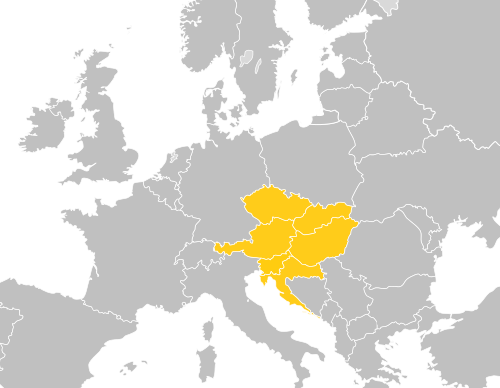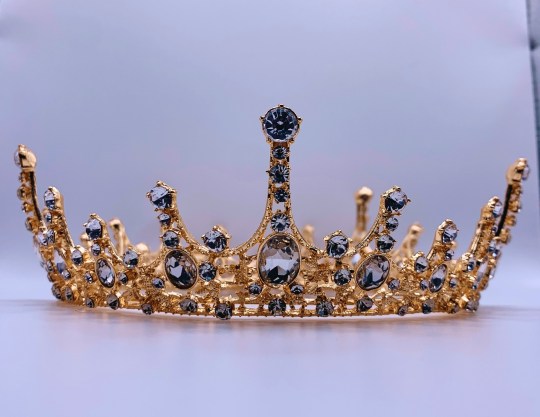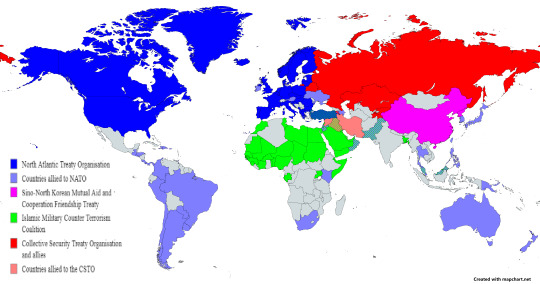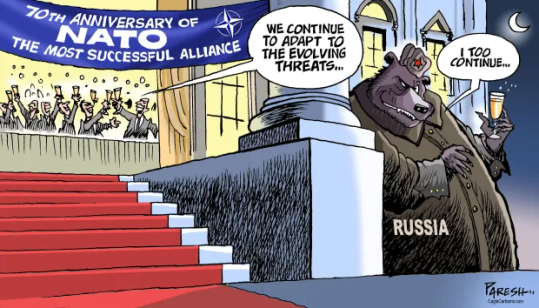#alliances
Photo

Member countries of the Central European Defence Cooperation
91 notes
·
View notes
Photo

Unlikely Alliance
"Strange alliances are alliances still, and provide the same protection." —King Darien of Kjeldor
Artist: Phil Foglio
TCG Player Link
Scryfall Link
EDHREC Link
343 notes
·
View notes
Text

#The new comics are complete meh#An abuse towards the book#One big mistake#Thrawn#Mitthrawnuruodo#Grand admiral Thrawn#Star wars#Alliances comic#Alliances#Thrawn trilogy#Alliances book#Darth Vader
22 notes
·
View notes
Text
despite all the chaos that has occurred in the past 3 episodes, I’m surprised at how much alliances are holding up. Like I’m other seasons, at this point at least 1 team would’ve have a major issue but nope, everyone is happy and friends with all their teams.
the nosey neighbours and mean gills are both completely loyal to their teammates.
TIES are surprisingly stable considering what happened to the last 4 person team when a boogey man was in play (*cough* BEST *cough*). The only issue TIES are having is an Etho and his family issue (which tbh after how ep 6 went I don’t think is an issue anymore - well bdubs is an issue but he’s always been an issue)
then there’s the clockers. Cleo and scar are completely loyal to each other and bdubs is really trying to stay loyal to them, but then is also just not normal about Etho and is trying to stay loyal to him, which is basically causes issues with both the clockers and TIES, tho there hasn’t been any actual betrayal (yet)
and then probably the closest team to betrayal - the bad boys. And this is all grian’s fault. Jimmy and Joel- since the very start - have been completely loyal to each other, and it’s only really been Grian causing issues, trying to kick Jimmy out, making friendships all over the place (tho that is probably good for the bad boys in the long run). And also - accidentally- ending up killing Jimmy, and tbh I wouldn’t be surprised if Jimmy just decides to snap and at grian next episode
#limited life#limited life smp#alliances#nosey neighbors#mean gills#team ties#the bad boys#the clockers#you know what I’m proud of everyone and their loyalty#Tho I am waiting for something to go horribly wrong#trafficblr
86 notes
·
View notes
Text

Mike Luckovich ::
* * * *
LETTERS FROM AN AMERICAN
February 10, 2024
HEATHER COX RICHARDSON
FEB 11, 2024
A key story that got missed yesterday was that the Senate voted 64–19 to allow a bill that includes $95.34 billion in aid for Ukraine, Israel, and Taiwan to advance a step forward. In terms of domestic politics, this appears to be an attempt by those who controlled the Republican Party before Trump to push back against Trump and the MAGA Republicans.
MAGA lawmakers had demanded border security measures be added to a national security supplemental bill that provided this international aid, as well as humanitarian aid to Gaza, but to their apparent surprise, a bipartisan group of lawmakers actually hammered out that border piece. Trump immediately demanded an end to the bill and MAGA obliged on Wednesday, forcing the rest of the party to join them in killing the national security supplemental bill. House Republicans then promptly tried to pass a measure that provided funding for Israel alone.
At stake behind this fight is not only control of the Republican Party, but also the role of the U.S. in the world—and, for that matter, its standing. And much of that fight comes down to Ukraine’s attempt to resist Russia’s invasions of 2014 and 2022.
Russian president Vladimir Putin is intent on dismantling the rules-based international order of norms and values developed after World War II. Under this system, international organizations such as the United Nations provide places to resolve international disputes, prevent territorial wars, and end no-holds-barred slaughter through a series of agreements, including the United Nations Charter, the Universal Declaration of Human Rights, the U.N. Genocide Convention, and the Geneva Conventions on the laws of war.
Putin’s invasion of Ukraine, deliberate targeting of civilian populations, and war crimes are his way of thumbing his nose at the established order and demanding a different one, in which men like him dominate the globe.
Trump’s ties to Russia are deep and well documented, including by the Senate Intelligence Committee, which was dominated by Republicans when it concluded that Trump’s 2016 campaign team had worked with Russian operatives. In November 2022, in the New York Times Magazine, Jim Rutenberg pulled together testimony given both to Special Counsel Robert Mueller’s investigation and the Senate Intelligence Committee, transcripts from the impeachment hearings, and recent memoirs.
Rutenberg showed that in 2016, Russian operatives had presented to Trump advisor and later campaign manager Paul Manafort a plan “for the creation of an autonomous republic in Ukraine’s east, giving Putin effective control of the country’s industrial heartland, where Kremlin-armed, -funded, and -directed ‘separatists’ were waging a two-year-old shadow war that had left nearly 10,000 dead.”
But they were concerned that the North Atlantic Treaty Organization (NATO) might stand in their way. Formed in 1947 to stand against Soviet expansion and now standing against Russian aggression, NATO is a collective security alliance of 31 states that have agreed to consider an attack on any member to be an attack on all.
In exchange for weakening NATO, undermining the U.S. stance in favor of Ukraine in its attempt to throw off the Russians who had invaded in 2014, and removing U.S. sanctions from Russian entities, Russian operatives were willing to put their finger on the scales to help Trump win the White House.
When he was in office, Trump did, in fact, try to weaken NATO—as well as other international organizations like the World Health Organization—and promised he would pull the U.S. out of NATO in a second term, effectively killing it. Rutenberg noted that Russia’s February 2022 invasion of Ukraine looks a lot like an attempt to achieve the plan it suggested in 2016. But because there was a different president in the U.S., that invasion did not yield the results Putin expected.
President Joe Biden stepped into office more knowledgeable on foreign affairs than any president since Dwight Eisenhower, who took office in 1953. Biden recognized that democracy was on the ropes around the globe as authoritarian leaders set out to dismantle the rules-based international order. He also knew that the greatest strength of the U.S. is its alliances. In the months after he took office, Biden focused on shoring up NATO, with the result that when Russia invaded Ukraine again in February 2022, a NATO coalition held together to support Ukraine.
By 2024, far from falling apart, NATO was stronger than ever with the addition of Finland. Sweden, too, is expected to join shortly.
But far more than simply shore up the old system, the Biden administration has built on the stability of the rules-based order to make it more democratic, encouraging more peoples, nations, and groups to participate more fully in it. In September 2023, Secretary of State Antony Blinken explained to an audience at the Johns Hopkins School of Advanced International Studies that the end of the Cold War made people think that the world would inevitably become more peaceful and stable as countries cooperated and emphasized democracy and human rights.
But now, Blinken said, that era is over. After decades of relative stability, authoritarian powers have risen to challenge the rules-based international order, throwing away the ideas of national sovereignty and human rights. As wealth becomes more and more concentrated, people are losing faith in that international order as well as in democracy itself. In a world increasingly under pressure from authoritarians who are trying to enrich themselves and stay in power, he said, the administration is trying to defend fair competition, international law, and human rights.
Historically, though, the U.S. drive to spread democracy has often failed to rise above the old system of colonialism, with the U.S. and other western countries dictating to less prosperous countries. The administration has tried to avoid this trap by advancing a new form of international cooperation that creates partnerships and alignments of interested countries to solve discrete issues. These interest-based alignments, which administration officials refer to as “diplomatic variable geometry,” promise to preserve U.S. global influence and perhaps an international rules-based order but will also mean alliances with nations whose own interests align with those of the U.S. only on certain issues.
In the past three years, the U.S. has created a new security partnership with Australia and the United Kingdom, known as AUKUS, and held a historic, first-ever trilateral leaders’ summit at Camp David with Japan and the Republic of Korea. It has built new partnerships with nations in the Indo-Pacific region, as well as with Latin American and Caribbean countries, to address issues of immigration; two days ago the Trilateral Fentanyl Committee met for the fourth time in Mexico. This new system includes a wider range of voices at the table—backing the membership of the African Union in the Group of 20 (G20) economic forum, for example—advancing a form of cooperation in which every international problem is addressed by a group of partner nations that have a stake in the outcome.
At the same time, the U.S. recognizes that wealthier countries need to step up to help poorer countries develop their own economies rather than mine them for resources. Together with G7 partners, the U.S. has committed to deliver $600 billion in new investments to develop infrastructure across the globe—for example, creating a band of development across Africa.
Biden’s is a bold new approach to global affairs, based on national rights to self-determination and working finally to bring an end to colonialism.
The fight over U.S. aid to Ukraine, Israel, Taiwan, and the other countries with which we have made partnerships is not about saving money—most of the funds for Ukraine are actually spent in the U.S.—or about protecting the U.S. border, as MAGA Republicans demonstrated when they killed the border security bill. It is about whether the globe will move into the 21st century, with all its threats of climate change, disease, and migration, with ways for nations to cooperate, or whether we will be at the mercy of global authoritarians.
Trump’s 2024 campaign website calls for “fundamentally reevaluating NATO’s purpose and NATO’s mission,” and in a campaign speech in South Carolina today, he made it clear what that means. Trump has long misrepresented the financial obligations of NATO countries, and today he suggested that the U.S. would not protect other NATO countries that were “delinquent” if they were attacked by Russia. “In fact,” he said, “I would encourage [Russia] to do whatever the hell they want.”
—
LETTERS FROM AN AMERICAN
HEATHER COX RICHARDSON
#political cartoons#Mike Luckovich#Letters From an American#Heather Cox Richardson#history#NATO#alliances#foreign policy#AUKUS#security partnership#democracy#21st century#diplomatic variable geometry
11 notes
·
View notes
Text
Flavor Text Highlights - Alliances
<- Previous Set | Next Set ->
Cool - Pillage
“Were they to reduce us to ash, we would clog their throats and sting their eyes in payment.”
—Lovisa Coldeyes, Balduvian Chieftain

Funny - Mystic Compass
“And I say north is where I want it to be!”
—Jaya Ballard, Task Mage

Worldbuilding - Royal Herbalist
“Just as an Herbalist heals a wound, so must we heal the rift between Balduvia and Kjeldor.” —King Darien of Kjeldor

Emotional - Soldevi Heretic
“In the arms of tragedy, there is little comfort in being right.”
—Sorine Relicbane, Soldevi Heretic

<- Previous Set | Next Set ->
22 notes
·
View notes
Text
Kenobi looked cautiously to the side where a group of Klatoonians lounged in the shadows, They were sizing up the small knot of Imperials.
While the reach of the Empire was long indeed, Palpatine had shown no desire to clash with the powerful Hutt cartel.
Imperial officers and troopers had been robbed and murdered out here before, their bodies given to the vast sands of Tatooine.
It would happen again.
There was only a small garrison on the planet and they were not willing to anger the population of spicers, smugglers, and pirates.
If Obi-Wan was reading the feel of the atmosphere correctly, this little group of Imperials wouldn’t last long here.
And he couldn’t let himself be too concerned about that. Were they not looking for the Lars Homestead he might have tried to subtly guide the Imperials away from the area. But Luke must take the highest priority, and Obi-Wan had to leave them to their fate.
#star wars#star wars original trilogy#star wars au#firmus piett#admiral piett#luke skywalker#obi wan kenobi#owen lars#beru whitesun lars#darth vader#drama#teenage Luke#The secret’s out#So who will get to luke first?#because two people are hunting him#family#alliances#friendship
19 notes
·
View notes
Text

Challenge #04123-K105: Fel Fiancee
The letter was written as Wraithvine suggested, the princess visiting the new young, very nervous, king. It's good to make friends one's own age to talk to.
https://peakd.com/fiction/@internutter/challenge-03978-j326-fel-fortunes -- Fighting Fit
King Kosh was apparently a tight-fisted monarch. Not spending very much on appearances, pomp, nor circumstance. The Princess Optimism Caibanise Ayoka Whitekeep arrived on horseback, in travelling leathers, and had an Elven 'grass' blade at her hip for defence. Her staff were similarly equipped.
Only her papers and her heraldric ring verified her identity. She carried herself with the confidence of someone who knew how to hold her own in a fight. A fact soon proven true by the first of many would-be assassins sent after Ozarkas.
Her father was a Master of the Art of Shadows, and had taught all his children very well.
[Check the source for the rest of the story]
3 notes
·
View notes
Video
youtube
I put subtitles on That Scene from "Alliances" [Star Trek Voyager S02E14]
#my video#star trek voyager#the primordial chaotic energy that is the voyager conference room#alliances#kathryn janeway#chakotay#seska#b'elanna torres#Harry Kim#tom paris#neelix
28 notes
·
View notes
Text

Victoria (2016) Entente Cordiale
S2E5
After Peel airs his misgivings over wily French king Louis Philippe betrothing his son to Isabel, the Spanish infanta, fearing a Franco-Spanish alliance against Britain, Victoria travels with her entourage to the French court to dissuade the king. She is frustrated by his refusal to discuss the reason for her visit and puzzled by the reluctance of Albert, to support her, until he admits to her Leopold's revelation and is reassured by her view that it changes nothing between them. As a result the pair form an entente cordiale whilst closet gay lovers Lord Alfred Paget and government aide Drummond enjoy a nude dip with Albert. However, on return to England ,Victoria learns of the French king's duplicity though she does have a pleasant surprise for Albert.
#Victoria#tv series#2016#2018 episode#Entente Cordiale#S2E5#travel#France#alliances#French ways#secrets#relationships#queen Victoria#period drama#Jenna Coleman#biography#history#just watched
2 notes
·
View notes
Photo

Military alliances in the world
93 notes
·
View notes
Photo

Omen of Fire
"Let Balduvia burn to warm Kjeldor's hearth!" —General Varchild
Artist: Pete Venters
TCG Player Link
Scryfall Link
EDHREC Link
131 notes
·
View notes
Text

#DiaInternacionalDeLaPaz #worldpeaceday #startrek #errandofmercy #strangenewworlds #enterprise #home #theundiscoveredcountry #khitomer #thenextgeneration #unification #deepspacenine #whatyouleavebehind #voyager #alliances #startrekdiscovery #startrek57 @TrekCore
#diainternacionaldelapaz#worldpeaceday#startrek#errand of mercy#strange new worlds#enterprise#home#theundiscoveredcountry#khitomer#the next generation#unification#deep space nine#whatyouleavebehind#voyager#alliances#star trek discovery#startrek57
2 notes
·
View notes
Text
Alliances and allegiances

It is ironic in a way that Saitama doesn't consider his own alliances a group, even though he's well on his way building the only S-rank alliance and the most powerful one the OPM world has ever seen, probably even trumping any possible robotics group Metal Knight could have assembled.
Only Saitama would be able to get the allegiance of multiple heroes through different ranks this fast and build rapport with them all.
Certaintly an S-rank group with some other powerful people from other ranks and even outside the Hero association put together and united can do quite amazing things, as we saw on MA-arc. They just needed someone to guide them like Sekingar, so they don't end up doing petty squabbles between each other.

It is kind of funny how Saitama so easily gets all these people to surround him, just by being himself and then just like that, loyal to him because he's genuinely a good guy and a good friend and companion.
Even Genos who might find things to criticize, couldn't say anything about having a group of S-rankers where nobody compensates for their individual weaknesses with pure numbers, rather than complimenting each other's strenghts and covering for weak points and who can also all work together seamlessly with their mindset.
If things ever get sticky for Saitama, he doesn't even know just how affluential he is in terms of interpersonal relationships and he's only spreading out his influence. If other people choose to not play fair against him, he's definitely not on his own anymore even if someone tried to use underhanded tactics like Fubuki to get him to play her tune.
One by one, many of the main cast will belong in Saitama group at the end. And it'll be a big group.
13 notes
·
View notes
Text

LETTERS FROM AN AMERICAN
January 11, 2024
HEATHER COX RICHARDSON
JAN 12, 2024
“Today, at my direction,” President Joe Biden said this evening, “U.S. military forces—together with the United Kingdom and with support from Australia, Bahrain, Canada, and the Netherlands—successfully conducted strikes against a number of targets in Yemen used by Houthi rebels to endanger freedom of navigation in one of the world’s most vital waterways.”
The strikes came after the Iran-backed Houthi militia launched 27 attacks on vessels in the Red Sea, including merchant shipping vessels that carry about 12% of the world’s oil, 8% of its grain, and 8% of liquefied natural gas, as well as other commodities.
While the Houthis claim their attacks are designed to support the Palestinians in Gaza, they are also apparently angling to continue and spread the Hamas-Israel war into a wider conflict. Hamas, the Houthis, and Hezbollah, all nonstate actors backed by Iran, would like very much to extend and enlarge the war to enhance their own power and win adherents to their ideologies.
The Arab states do not want the conflict to spread. Neither does the U.S. government, and Biden and Secretary of State Antony Blinken have worked hard to make sure it doesn’t, sending two carrier groups to the region, for example, to deter enthusiasm for such an extension.
On October 19, shortly after the October 7 Hamas attack on Israel, Houthis launched cruise missiles and drones designed by Iran at Israel, but when the USS Carney and Saudi Arabia shot the weapons down, they turned to attacking shipping. Fifty or so ships use the Red Sea waterway every day.
On November 19, Houthis seized a Japanese-registered vessel, the Galaxy Leader, along with its 25-member international crew, prompting the United Nations Security Council to condemn “in the strongest terms” the “recent Houthi attacks” and “demanded that all such attacks and action cease immediately.” The Security Council “underlined the importance of…international law.”
On December 3, Houthis struck another three ships.
On December 19, the U.S., the European Union, the North Atlantic Treaty Organization, and a group representing 44 allies and partner nations condemned the Houthi attacks, noting that such attacks threatened international commerce, endangering supply chains and affecting the global economy. Also on December 19, the U.S. and partners announced a naval protection group for maritime shipping in the waterway, dubbed Operation Prosperity Guardian.
When the attacks continued, the governments of the U.S., Australia, Bahrain, Belgium, Canada, Denmark, Germany, Italy, Japan, Netherlands, New Zealand, Republic of Korea, Singapore, and the United Kingdom warned the Houthis on January 3, 2024, that their attacks were “illegal, unacceptable, and profoundly destabilizing,” delaying the delivery of goods and “jeopardizing the movement of critical food, fuel, and humanitarian assistance throughout the world.” They called for an end to the attacks and the release of the detained vessels and crew members, and they warned that the Houthis would bear responsibility for the “consequences” if the attacks continued.
“We remain committed to the international rules-based order and are determined to hold malign actors accountable for unlawful seizures and attacks,” the statement said.
Administration officials told the press the U.S. would strike the Houthis militarily if the attacks didn’t stop, although Biden has not wanted to destabilize Yemen further than it already is after a decade of civil war. “The president has made clear the U.S. does not seek conflict with any nation or actor in the Middle East,” John Kirby, spokesperson for the White House National Security Council, said. “But neither will we shrink from the task of defending ourselves, our interests, our partners or the free flow of international commerce.” An administration official said: “I would not anticipate another warning.”
On Tuesday, January 9, the Houthis launched 21 drones and missiles in the most significant attack yet—one that directly targeted U.S. ships—and on January 10 the U.N. Security Council passed UNSCR 2722, a resolution condemning the attacks “in the strongest terms.” Eleven members voted in favor and none opposed it. Four countries—China, Russia, Algeria, and Mozambique—abstained, but neither China nor Russia, both of which have veto power, would veto the resolution.
Today the U.S. and the U.K., with coalition support, responded. Military strikes came from the air, ocean, and underwater, according to a defense official, and they hit weapons storage areas and sites from which the Houthis have been launching drones and cruise missiles.
The governments of Australia, Bahrain, Canada, Denmark, Germany, Netherlands, New Zealand, Republic of Korea, the U.K, and the U.S. announced the “precision strikes,” saying they were “in accordance with the inherent right of individual and collective self-defense, consistent with the UN Charter” and “were intended to disrupt and degrade the capabilities the Houthis use to threaten global trade and the lives of international mariners in one of the world’s most critical waterways.”
“Our aim remains to de-escalate tensions and restore stability in the Red Sea,” the statement read, “but let our message be clear: we will not hesitate to defend lives and protect the free flow of commerce in one of the world’s most critical waterways in the face of continued threats.” Biden’s statement sounded much the same but added: “I will not hesitate to direct further measures to protect our people and the free flow of international commerce as necessary.”
As the January 3 statement from the governments of the U.S., Australia, Bahrain, Belgium, Canada, Denmark, Germany, Italy, Japan, Netherlands, New Zealand, Republic of Korea, Singapore, and the U.K. made clear, one of the key things at stake in standing against the Houthi attacks is the international rules-based order, that is, the system of international laws and organizations developed after World War II to prevent global conflicts by providing forums to resolve differences peacefully. A key element of this international system of agreements is freedom of the seas.
Also central to that rules-based international order is partnerships and allies. Two days ago, one of Europe’s leading politicians revealed that in 2020, former president Trump told European Commission president Ursula von der Leyen: “You need to understand that if Europe is under attack, we will never come to help you and to support you.” According to the politician, Trump added that “NATO is dead, and we will leave, we will quit NATO,” a threat he has made elsewhere, too.
In contrast, as soon as he took office, President Biden set out to support and extend U.S. alliances and partnerships. While that principle shows in the international support for today’s strike on the Houthis, it has also been central in the administration’s response to Russia’s 2022 invasion of Ukraine, managing migration, supporting African development, building the Indo-Pacific, and reacting to the Middle East crisis in general.
Today, Secretary of State Blinken finished a week-long trip to Türkiye, Greece, Jordan, Qatar, the United Arab Emirates, Saudi Arabia, Israel, the West Bank, Bahrain, and Egypt, where he met with leaders and reaffirmed “the U.S. commitment to working with partners to set the conditions necessary for peace in the Middle East, which includes comprehensive, tangible steps toward the realization of a future Palestinian state alongside the State of Israel, with both living in peace and security.”
LETTERS FROM AN AMERICAN
HEATHER COX RICHARDSON
5 notes
·
View notes
Note
Rodgers girlies 🤝 Brady girlies: the alliance of the superstar quarterback you’ve crushed on since high school who has ended up a cheating deteriorating weirdo but you’d still let him hit it
I gasped when I first read this, anon, but then I laughed my ass off because for better or for worse, it do be true though!!
#askbox#asked and answered#anon#I genuinely love getting random messages like these 💗💓💞#Thanks for sending this in anon!!!#NFL#Tom Brady#Aaron Rodgers#alliances#pro quarterbacks
4 notes
·
View notes